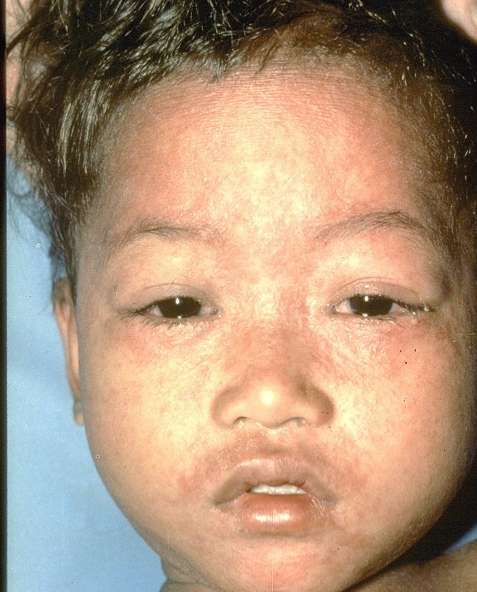Measles Outbreak within Mennonite Community
Measles, a highly contagious and potentially fatal viral illness once largely eradicated in the United States, is experiencing a resurgence, raising concerns among public health officials. A recent outbreak in rural West Texas, primarily affecting a close-knit Mennonite community with low vaccination rates, has highlighted the vulnerability of undervaccinated populations to this preventable disease. The outbreak, comprising 58 confirmed cases in Texas and an additional eight in neighboring New Mexico, is the largest seen in the state in nearly three decades, with the majority of cases concentrated in Gaines County, Texas. The geographic proximity of the cases in New Mexico to the Texas epicenter further emphasizes the ease with which measles can spread, underscoring the importance of widespread vaccination coverage to prevent further transmission.
The resurgence of measles is not an isolated incident. Earlier this month, the Centers for Disease Control and Prevention (CDC) reported 14 measles cases nationwide, indicating a broader trend of increasing infections. While measles was once a common childhood illness, infecting millions of Americans annually before the introduction of the measles, mumps, and rubella (MMR) vaccine in 1963, widespread vaccination efforts dramatically reduced its incidence. Today, fewer than 200 cases are typically reported each year in the U.S., primarily occurring in communities with low vaccination rates, often due to religious or philosophical objections. The current outbreaks serve as a stark reminder of the ongoing threat posed by measles and the critical role of vaccination in maintaining public health.
The Texas outbreak highlights the challenges in achieving herd immunity and preventing measles transmission, particularly within isolated communities. The Mennonite community affected by the outbreak reportedly holds beliefs that discourage vaccination, often opting for traditional folk remedies over modern medical interventions. This reluctance towards vaccination creates pockets of vulnerability within the population, allowing the virus to spread rapidly among unvaccinated individuals. While not all Mennonites eschew vaccination, the prevalence of vaccine hesitancy within some segments of the community has contributed to the current outbreak. This situation underscores the importance of targeted public health outreach and education efforts to address vaccine hesitancy and promote vaccination uptake within these communities.
The measles virus, an airborne pathogen, can persist in the air for up to two hours, making it highly transmissible. With a transmission rate of 90% among unvaccinated individuals exposed to the virus, measles can quickly spread through undervaccinated populations. The virus initially infects the respiratory system, causing symptoms such as fever, cough, runny nose, and a characteristic rash. While most individuals recover fully, measles can lead to serious complications, including pneumonia, encephalitis (brain swelling), and even death, particularly among young children and individuals with compromised immune systems. The severity of potential complications underscores the critical need for vaccination to protect vulnerable populations.
The ongoing debate surrounding vaccine safety, fueled in part by a discredited study falsely linking the MMR vaccine to autism, has contributed to vaccine hesitancy and declining vaccination rates. The proliferation of misinformation online and through social media has further exacerbated this issue, creating confusion and distrust among some parents. This erosion of public trust in vaccines has real-world consequences, as evidenced by the resurgence of preventable diseases like measles. Public health officials and healthcare providers must actively combat misinformation and reinforce the safety and efficacy of vaccines to protect individuals and communities from vaccine-preventable diseases.
The COVID-19 pandemic further compounded the challenges of maintaining measles vaccination coverage. Disruptions to routine healthcare services and vaccine delivery systems, coupled with concerns about exposure to the virus in healthcare settings, led to significant declines in measles vaccination rates globally. The World Health Organization estimates that 61 million fewer doses of measles vaccine were administered between 2020 and 2022, creating a substantial pool of susceptible individuals and increasing the risk of measles outbreaks. The pandemic highlighted the interconnectedness of global health security and the importance of strengthening routine immunization programs to prevent resurgences of vaccine-preventable diseases. The current measles outbreaks serve as a wake-up call to prioritize catch-up vaccination campaigns and rebuild public trust in vaccines to protect communities from future outbreaks.
Share this content:












Post Comment